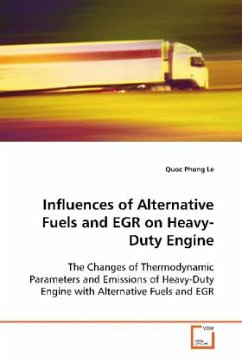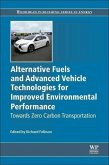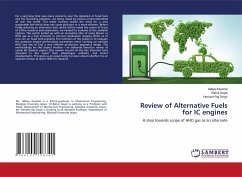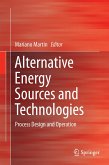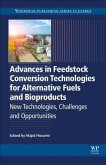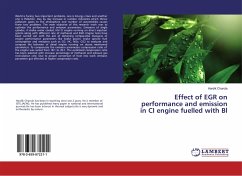Determining the impact of diesel exhaust
emissions on human health and the environment
requires evaluating both regulated and unregulated
properties of exhaust gas. In particular, emissions
from new fuels have to be examined thoroughly to
prevent any impact from increased emissions of
harmful substances. In addition, identifying and
utilizing new alternative fuels to replace fossil
fuels is an important task now and in the future.
This study investigates the influences of
properties
of RME 100%, RME-diesel blends of different ratios,
ethanol-diesel blends with low amounts of ethanol
and gas-to-liquid and its blends on thermodynamic
properties and emissions, specifically their
impacts
on cylinder pressure levels.To this end, different
variables are combined e.g. with different EGR
rates, EGR temperatures and injection timing. The
results obtained are used to evaluate and optimize
the engine s operating process with exhaust gas
recirculation and different alternative fuels and
their blends with conventional fuels.
emissions on human health and the environment
requires evaluating both regulated and unregulated
properties of exhaust gas. In particular, emissions
from new fuels have to be examined thoroughly to
prevent any impact from increased emissions of
harmful substances. In addition, identifying and
utilizing new alternative fuels to replace fossil
fuels is an important task now and in the future.
This study investigates the influences of
properties
of RME 100%, RME-diesel blends of different ratios,
ethanol-diesel blends with low amounts of ethanol
and gas-to-liquid and its blends on thermodynamic
properties and emissions, specifically their
impacts
on cylinder pressure levels.To this end, different
variables are combined e.g. with different EGR
rates, EGR temperatures and injection timing. The
results obtained are used to evaluate and optimize
the engine s operating process with exhaust gas
recirculation and different alternative fuels and
their blends with conventional fuels.

